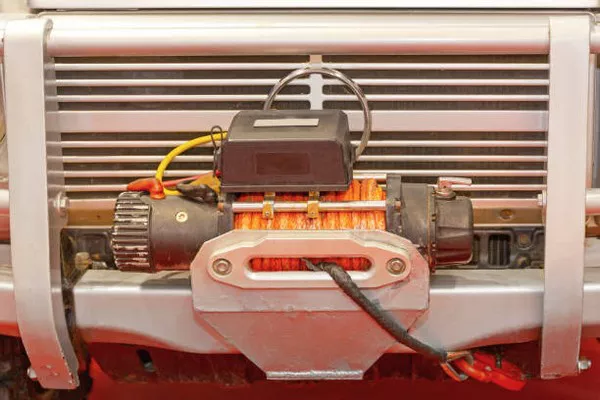Natural gas generators are increasingly popular for both residential and commercial applications due to their efficiency, reliability, and environmental benefits. Understanding how long these generators can run is crucial for effective planning and usage, particularly during power outages or in off-grid situations. This article explores the factors that affect the runtime of natural gas generators, the average operational durations, and best practices for maximizing efficiency and longevity.
1. Understanding Natural Gas Generators
Before diving into runtime specifics, it’s essential to understand what natural gas generators are and how they operate.
What is a Natural Gas Generator?
A natural gas generator converts natural gas into electricity through an internal combustion engine or a gas turbine. These generators can be used for backup power during outages or as a primary power source for various applications.
Key Components
The main components that influence a generator’s runtime include:
Engine: Converts fuel into mechanical energy.
Fuel System: Supplies and regulates natural gas.
Cooling System: Maintains optimal engine temperature.
Control Panel: Manages operational parameters.
2. Average Runtime of Natural Gas Generators
Continuous vs. Standby Operation
The runtime of a natural gas generator can vary significantly based on its intended use:
Continuous Operation: Generators designed for continuous use can run for extended periods, often exceeding 24 hours, provided they have a consistent supply of natural gas.
Standby Operation: These generators are typically used during power outages. Their runtime depends on the duration of the outage and the availability of natural gas.
Manufacturer Specifications
Most manufacturers provide specifications regarding runtime. This information usually includes:
Full Load Runtime: The maximum time a generator can operate under full load.
Partial Load Runtime: Runtime estimates at lower power outputs, which often result in longer operational periods.
3. Factors Influencing Runtime
Several factors can affect how long a natural gas generator can run effectively:
Fuel Supply
The primary factor influencing runtime is the availability of natural gas. Continuous access to a gas supply is essential for extended operation. In the case of an emergency, a backup propane tank can be used if the generator supports dual fuel options.
Load Demand
The electrical load placed on the generator directly affects its runtime. Higher loads consume more fuel, leading to shorter runtimes. Conversely, operating at lower loads can extend the runtime significantly.
Maintenance Practices
Regular maintenance can improve runtime. Well-maintained generators run more efficiently and can handle longer operational periods. Key maintenance tasks include:
Regular oil changes.
Air filter replacements.
Fuel system inspections.
Cooling Requirements
Generators generate heat during operation. If a generator overheats, it may shut down to prevent damage. Ensuring proper cooling, whether through liquid or air cooling, is vital for sustained operation.
Environmental Conditions
Extreme temperatures can impact the efficiency and performance of a generator. Cold weather can affect fuel flow and engine performance, while high temperatures can lead to overheating issues.
4. Best Practices for Maximizing Runtime
To get the most out of your natural gas generator, consider the following best practices:
Calculate Your Load Requirements
Before running a generator, determine your load requirements. This can help in selecting the appropriate generator size and operating it efficiently.
Optimize Fuel Supply
Ensure a steady and reliable supply of natural gas. For backup systems, consider having propane as an alternative fuel source.
Conduct Regular Maintenance
Regular maintenance ensures that your generator operates efficiently. Create a maintenance schedule that includes:
Checking fuel and oil levels.
Inspecting and replacing filters.
Testing battery and electrical connections.
Monitor Operating Conditions
Keep an eye on the operating conditions of your generator. Use the control panel to monitor temperature, pressure, and load levels to prevent overheating or other issues.
Implement a Load Management System
If possible, implement a load management system to prioritize essential loads. This can help extend the runtime during critical periods.
5. Emergency Considerations
In emergency situations, understanding how to maximize runtime becomes even more critical:
Prioritize Essential Equipment
Identify which devices and systems are essential and prioritize their power supply. This can significantly extend the generator’s effective runtime.
Plan for Outages
Have a plan in place for expected power outages. Knowing how long your generator can run can help you prepare for outages effectively.
Keep Spare Parts Handy
Having essential spare parts on hand can minimize downtime and extend operational capabilities during emergencies.
6. Conclusion
Natural gas generators are a reliable and efficient power solution, but their runtime depends on various factors, including fuel supply, load demand, and maintenance practices. By understanding these aspects and implementing best practices, users can maximize their generator’s operational duration, ensuring that they have the necessary power when they need it most. Whether for residential backup or commercial use, knowing how long a natural gas generator can run is essential for effective energy management.
Related topics:

